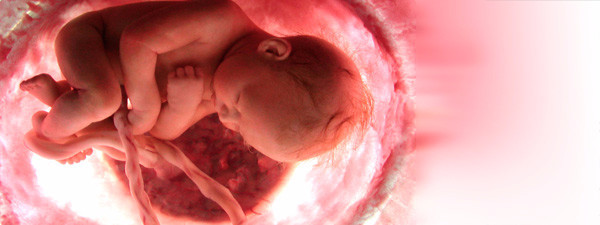What is Klinefelter syndrome?
 Klinefelter syndrome is a genetic pathology of men, based on endocrine disorders caused by additional female chromosomes in the set of sex chromosomes. This is a fairly common genetic disease. According to statistics, 0.2% of men are susceptible to it, and among endocrine disorders, Klinefelter syndrome ranks third (diabetes mellitus in the first place, and thyrotoxicosis in the second). But according to the same statistics, only 50% of cases are diagnosed.
Klinefelter syndrome is a genetic pathology of men, based on endocrine disorders caused by additional female chromosomes in the set of sex chromosomes. This is a fairly common genetic disease. According to statistics, 0.2% of men are susceptible to it, and among endocrine disorders, Klinefelter syndrome ranks third (diabetes mellitus in the first place, and thyrotoxicosis in the second). But according to the same statistics, only 50% of cases are diagnosed.
Little genetics
Chromosomes are structures that contain cells in the nucleus and carry hereditary information. A person has 46 chromosomes, of which 44, or 22 pairs, are so-called somatic, and one pair is sex, determining the sex of the individual. It is the composition of the sex chromosomes that distinguishes a man from a woman. In the normal chromosomal set of a woman there are two X chromosomes – XX, for a man this set contains one X and one Y chromosome – XY.
Causes of Klinefelter Syndrome
The basis of this genetic disease is the presence of extra female sex chromosomes in the chromosome set of a man. It can be one (XXY) – the classic version, two (XXXY) and even three additional X chromosomes (XXXXY). But despite the extra female chromosomes, those suffering from this syndrome remain men, as they always have a male chromosome.
The result of extra X-chromosomes is a lack of testicular function, that is, an insufficient formation of male sex hormones in them.
Klinefelter syndrome is not inherited, if only because its carriers are usually completely infertile. Anomaly appears in the early stages of sperm and egg formation, and the causes of this phenomenon have been little studied.
Manifestations of Klinefelter syndrome
Most genetic diseases manifest themselves in infancy, and sometimes during fetal development. In the case of Klinefelter syndrome, the pregnancy in a woman is normal, no signs of pathology are observed in young children.
The very first evidence of the syndrome can be found in a boy aged 6–8 years. These children have tall stature, long limbs, high waist. In addition, they may have some mental retardation. They hardly perceive the information by ear, it is difficult for them to express their thoughts.
More pronounced signs of the disease are found in adolescence.
It:
gynecomastia – an increase in the mammary glands;
underdevelopment of the testicles, they are small and firm;
weak hair growth on the face and chest;
the pubic hairline is horizontal (female type), not rhomboid (male type).
All male sex hormones suffering from Klinefelter syndrome are not sufficiently produced, but to varying degrees: some young men suffer from weak potency, decreased sexual desire, someone does not have it at all, while others get married and have no problems in sexual life.
But all men with Klinefelter syndrome suffer from infertility, since there are no spermatozoa in their seminal fluid.
Comorbidities
The lack of male sex hormones affects not only the reproductive function. It leads to a metabolic disorder, which is manifested by obesity and non-insulin-dependent diabetes mellitus. Due to the lack of androgens, weak muscles and fragile bones (osteoporosis) are characteristic of the patients.
In men suffering from this pathology, autoimmune diseases are more common.
Mind and Intellect
As a rule, patients with Klinefelter syndrome are timid, sensitive people with low self-esteem. They often become alcoholics and drug addicts, among them people with non-traditional sexual orientation are more common. However, it is not clear whether these features and tendencies are related to the extra chromosome or they are the answer to sexual problems.
With regard to intellectual abilities, among patients there are people with fairly low intelligence, and with an IQ that exceeds average values. But all sufferers of this chromosomal pathology experience problems with the auditory perception of information and speech.
Diagnosis and treatment of Klinefelter syndrome
Pathology is diagnosed by examining the blood for male sex hormones and chromosomal analysis.
If the disease is mild, then its only sign is infertility and special treatment is not required.
If the signs of the disease are significantly pronounced and the man cannot have a sex life, he will be given hormone replacement therapy with testosterone for life. Sometimes, if the breasts are greatly enlarged and cause psychological trauma, they are surgically removed.
Sometimes in severe cases, patients have to resort to the help of a psychologist or psychotherapist.



